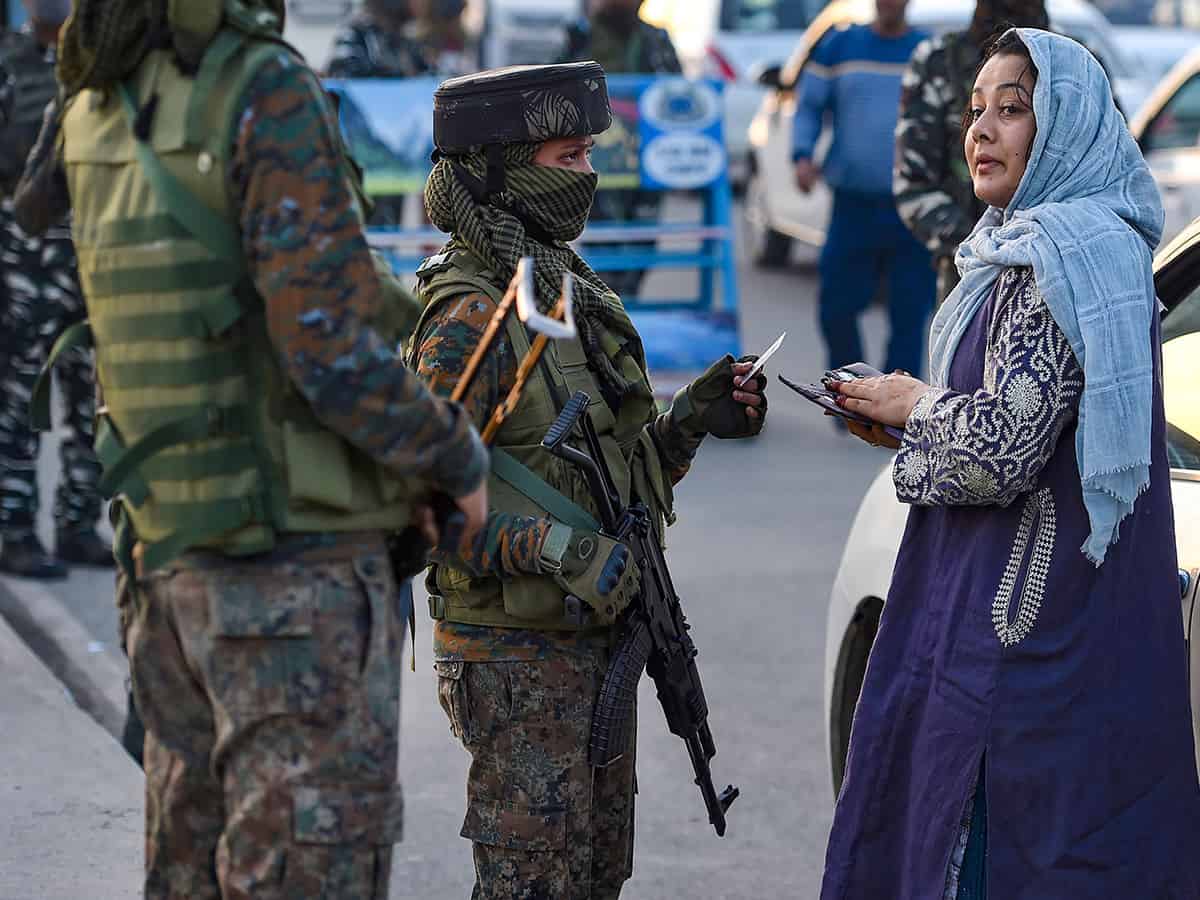
With just one proclamation, nowadays significant announcements are made through TV channels before those appear in the official gazettes, Union Home Minister Amit Shah has killed two birds with one stone: announced the Assembly elections in the Union territory in six to eight months’ time, fulfilling the promise of holding polls soon after the delimitation exercise is completed. Alongside, he declared that the delimitation exercise is about to get over.
The announcement, about the polls which would be specified by the Election Commission in the weeks to run up to the exact dates of the polls, has answered questions posed by all those who were wondering whether the polls would be held. this particular proclamation has undone all the negative debate that the interim proposals of the delimitation commission had generated, especially among the Kashmir-centric parties, which believed that the whole exercise of delineation of the constituencies in J&K was to favour the BJP, the party that has been yearning to form government in this Muslim-majority territory. Now the debate has shifted to elections, preparations for polls, and the political parties of Kashmir are constrained to say that they will take part in the elections, despite this what they call “ biased” delimitation of the constituencies.
Three of the most important leaders of Kashmir, Farooq Abdullah of National Conference, Altaf Bukhari of Apni Party, and Mehbooba Mufti of PDP have said that their parties would contest polls to save their electoral field in the battle against the forces ( read BJP) that took away the unique identity of the people of Jammu and Kashmir. This theme resonates more in the Valley, but the parts of the Jammu region, even Hindu dominated ones, are angry the way the non-permanent residents of Jammu and Kashmir are flooding the labour market, and the prospects of more industries coming up in the territory, mostly in Jammu, is also accompanied by the apprehension that more “ outsiders” will sit in their land and eat away their resources. But, the dilemma for the Hindus is whether they can trust the Muslim leadership to save them and their land because they believe that their region was being swamped by the Islamist forces and the land was in their sights always.
The delimitation commission, in its interim report, shared with the associate members – all the five Lok Sabha MPs from the Union territory – three from National Conference and BJP- has proposed 43 seats for Jammu and 47 from Kashmir, doing its task of carving out 90 constituencies for the next Assembly to be constituted after polls. At the same time, it has divided the Anantnag Parliamentary constituency between Kashmir Valley and the Jammu region’s subregion of Pir Panjal, comprising two border districts of Rajouri and Poonch lying adjacent to Pakistan occupied Jammu and Kashmir. Now, with the election schedule becoming almost clear, all the outrage over the delimitation commission’s proposals has relegated to background, though in the highly polarized situation on the communal, sub regional and regional lines will be used by the political parties to garner support from the communities on which they bank upon. BJP is relying on the Hindu vote and hopes to get the support of Gujjars and Bakerwals, for the tribe nine seats have been reserved across J&K. Earlier, there was no such political reservation for the tribe .
It is going to be an interesting contest that would be watched by the international community for its interest, because its voting percentage and the parties that would win will determine whether the August 5 decisions of the Government of India of doing away with the special status and bifurcation of the erstwhile state into two union territories has been accepted or not.

